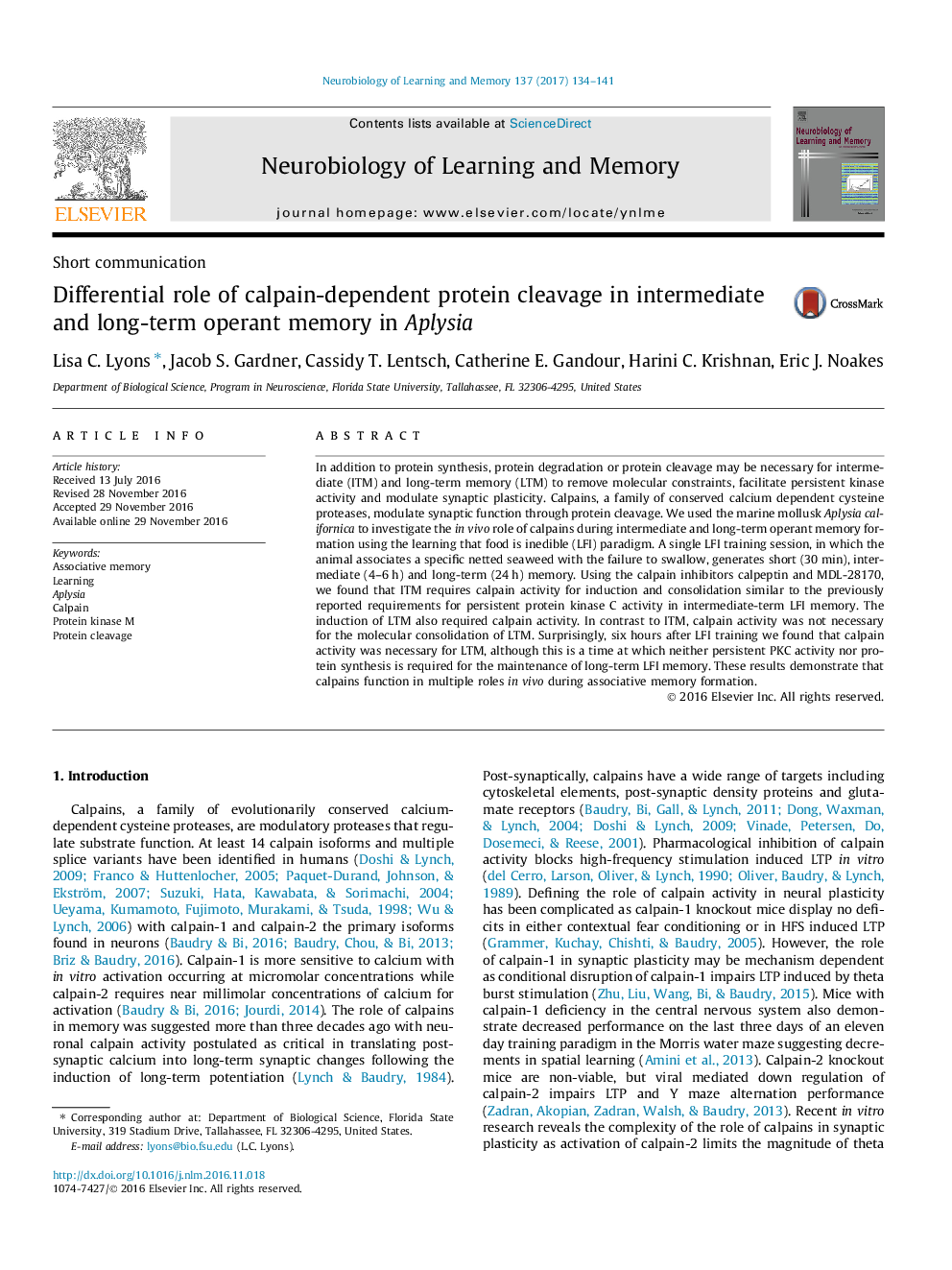| Article ID | Journal | Published Year | Pages | File Type |
|---|---|---|---|---|
| 5043384 | Neurobiology of Learning and Memory | 2017 | 8 Pages |
â¢Inhibition of calpain activity with calpeptin or MDL-28170 prevented ITM formation.â¢Calpain inhibition prior to training blocked the induction of LTM.â¢Inhibiting calpain activity immediately after training impaired ITM but not LTM.â¢Calpain activity at 6 h post-training is necessary for maintenance of 24 h LTM.â¢Calpains function in multiple roles in associative memory formation.
In addition to protein synthesis, protein degradation or protein cleavage may be necessary for intermediate (ITM) and long-term memory (LTM) to remove molecular constraints, facilitate persistent kinase activity and modulate synaptic plasticity. Calpains, a family of conserved calcium dependent cysteine proteases, modulate synaptic function through protein cleavage. We used the marine mollusk Aplysia californica to investigate the in vivo role of calpains during intermediate and long-term operant memory formation using the learning that food is inedible (LFI) paradigm. A single LFI training session, in which the animal associates a specific netted seaweed with the failure to swallow, generates short (30Â min), intermediate (4-6Â h) and long-term (24Â h) memory. Using the calpain inhibitors calpeptin and MDL-28170, we found that ITM requires calpain activity for induction and consolidation similar to the previously reported requirements for persistent protein kinase C activity in intermediate-term LFI memory. The induction of LTM also required calpain activity. In contrast to ITM, calpain activity was not necessary for the molecular consolidation of LTM. Surprisingly, six hours after LFI training we found that calpain activity was necessary for LTM, although this is a time at which neither persistent PKC activity nor protein synthesis is required for the maintenance of long-term LFI memory. These results demonstrate that calpains function in multiple roles in vivo during associative memory formation.
